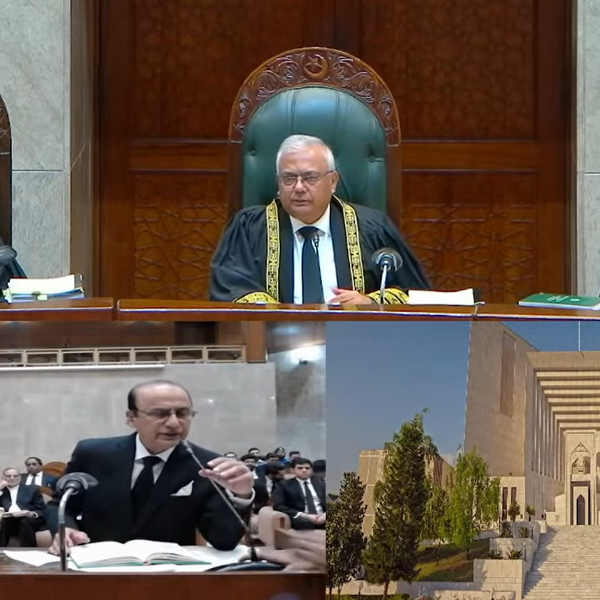Pakistan’s top court upholds dismissal of driver for workplace harassment
In harassment case ruling, top court calls workplace harassment a systemic barrier keeping women out of workforce

Asma Kundi
Producer, Islamabad
Asma Kundi is a multimedia broadcast journalist with an experience of almost 15 years. Served national and international media industry as reporter, producer and news editor.

A file photo of the Supreme Court of Pakistan.
Doctor was targeted by government driver who spread false relationship rumors
Court cited global statistics showing 743 million workers face workplace harassment
Pakistan’s Supreme Court on Thursday upheld the dismissal of a government driver who sexually harassed a female doctor, ruling that workplace harassment remains a key barrier to women’s participation in the workforce.
The court dismissed the final appeal by Muhammad Din, who was forced into compulsory retirement for harassing Dr. Sidra Zafar at a government medical facility. The ruling, written by Justice Syed Mansoor Ali Shah, framed workplace harassment as a systemic issue, not just an individual grievance.
The court cited global data showing that more than 743 million workers face workplace harassment, with women disproportionately affected. It also noted that Pakistan ranks second to last among 146 countries in gender equality, according to the Global Gender Gap Index.
Systemic abuse of power
The ruling highlighted that even lower-ranking employees can wield informal power to harass senior women professionals, reinforcing gender barriers in the workplace. Din had exhausted all legal avenues before the Supreme Court rejected his case.
In December 2019, Dr. Zafar filed a complaint against Din under Pakistan’s Protection Against Harassment of Women at the Workplace Act. She accused him of persistent verbal abuse and spreading false rumors about her relationships with male colleagues. Despite multiple warnings, he continued his behavior.
A Punjab Ombudsperson found Din guilty of workplace harassment and ordered his compulsory retirement. When he was issued a transfer order, he refused to comply, withholding vehicle keys and a logbook.
His appeal to the Punjab governor was dismissed in 2020. A constitutional petition in the Lahore High Court was also rejected in March 2023. The Supreme Court’s ruling marked the final rejection of his case.
Call for stronger protections
The court referenced Pakistan’s international commitments, including the International Labor Organization (ILO) conventions and the UN Sustainable Development Goals, which call for harassment-free workplaces.
It cited landmark international cases, including the U.S. Supreme Court’s Meritor ruling (1986), which established that hostile work environments constitute unlawful harassment. It also referred to India’s Vishaka judgment (1997), which led to strict workplace harassment guidelines, and Canada’s Janzen ruling (1989), which defined sexual harassment as gender-based discrimination.
The court urged Pakistan to strengthen enforcement of workplace harassment laws and align them with global standards. It recommended that the country ratify the ILO’s Violence and Harassment Convention to bolster existing protections.
A copy of the judgment was forwarded to Pakistan’s attorney general for review.
‘Flawed appeals process’
Human rights lawyer Imaan Mazari welcomed the ruling as a step forward but criticized Pakistan’s workplace harassment appeals process.
She noted that after a decision by the Ombudsperson, appeals are first heard by the Office of the President, where a legal adviser arbitrarily determines what qualifies as harassment.
"This forum is essentially a waste of time," Mazari said, arguing that cases should go directly to the high court instead.
She also called for legal amendments allowing complainants to bypass weak internal departmental committees and file complaints directly with the Federal Ombudsperson.
"The law must be revised to close these loopholes," she said.









Comments
See what people are discussing